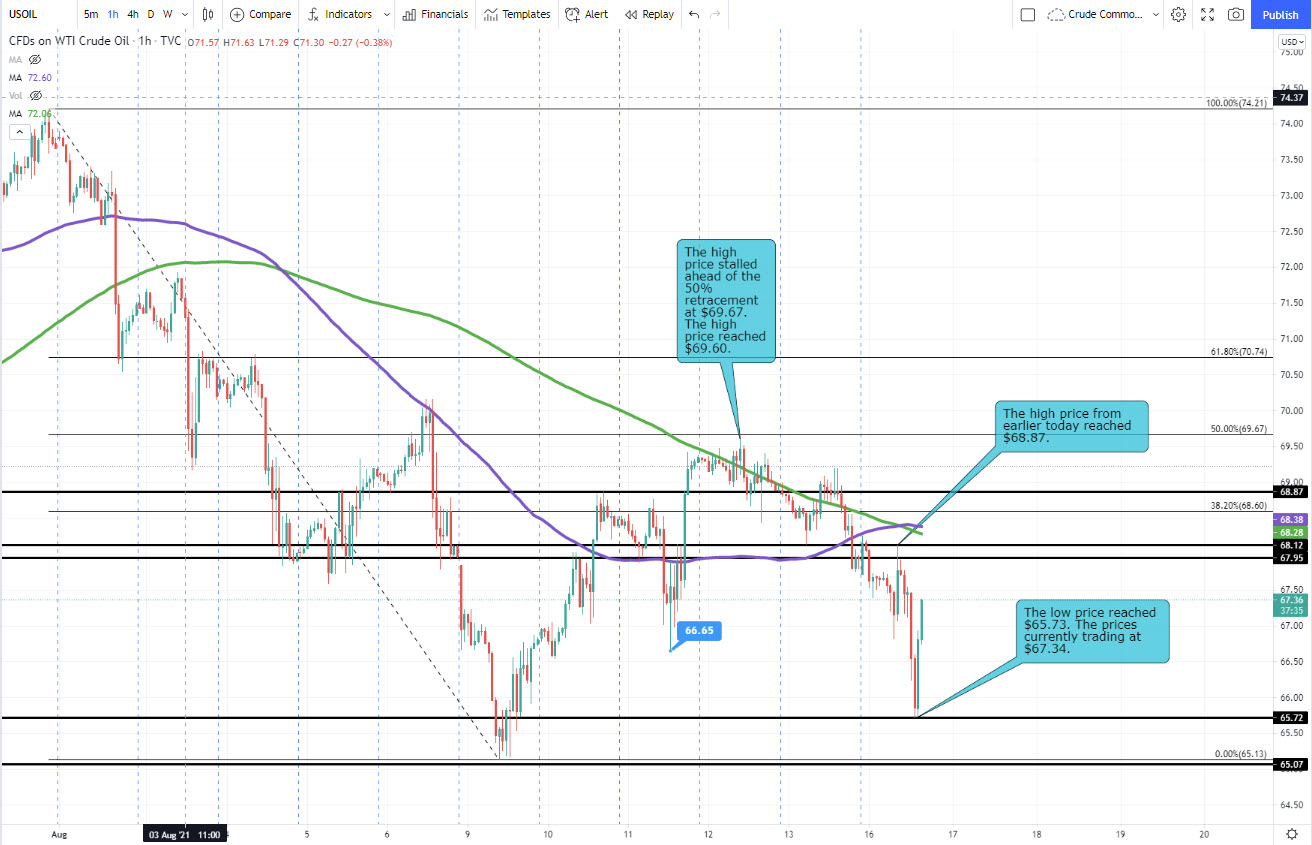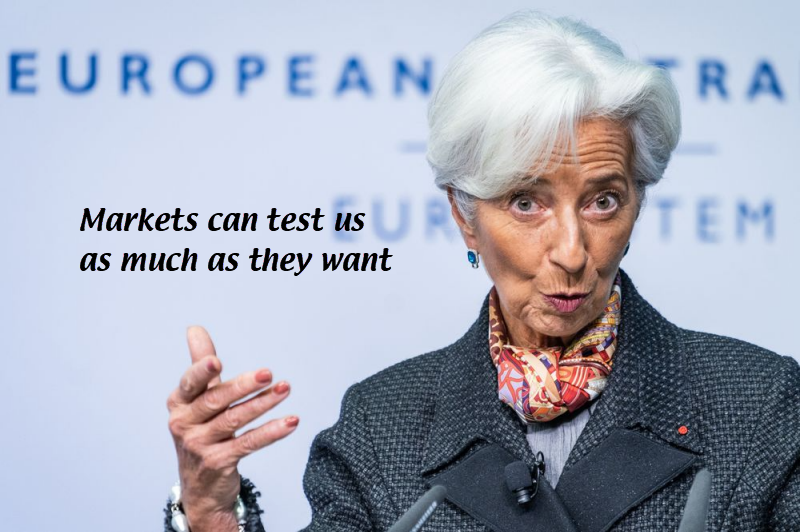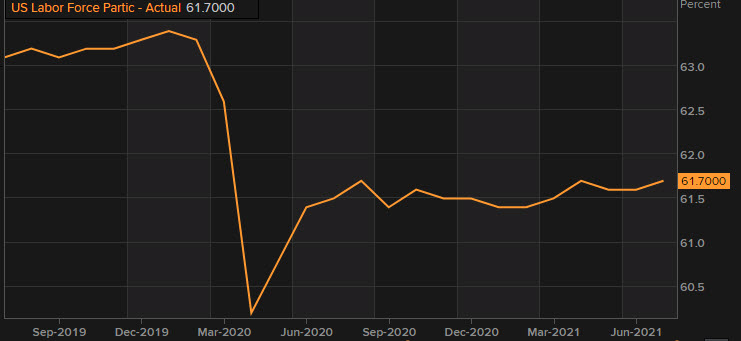Sources put damper on the US hopes that OPEC+ should release more oil
OPEC+ sources are saying that:
- OPEC+ sees no need to release more oil into the market at present
The comments come despite urges from the US White House which last week encouraged OPEC/Saudi to increase production in order to prevent the slowing of the global economy (due to higher energy prices).
Crude oil has moved higher on the report and currently trades down $0.64 or -0.95% at $67.28. The low price earlier today reached $65.72. The high price reached $68.87 earlier in the day.
.






